Winners of the Grammys' Best New Age Album Ranked.
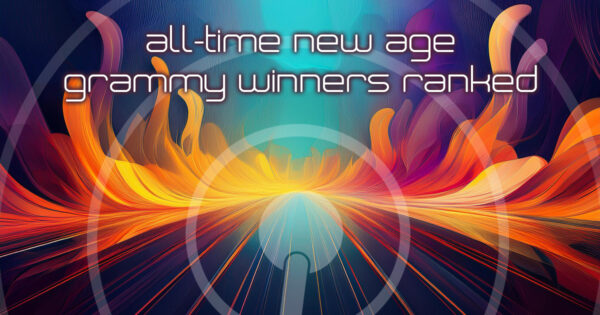
Now that the 2025 Grammy Awards are over, and all the hoopla attending the major nominees has subsided, I wanted to take a look back across the 38 year history of the humble Best New Age Album category, now known as The Best New Age, Ambient or Chant Album category. That name was recently even called out by Bill Maher for its absurdity.
I was thinking, what would you want a recording or artist to be in any category?
I always think they should be groundbreaking. They should be artists who have discovered new directions. They should also be recordings that others should aspire to emulate, raising the bar of artistry to new levels. Let’s think of Sgt. Pepper’s Lonely Hearts Club Band by The Beatles. It won Best Contemporary Album and Album of the Year in the 10th Grammy Awards. Or Miles Davis’s Bitches Brew which won Best Jazz Performance, Large Group or Soloist with Large Group in 1970. Those are the kinds of landmark releases that should be winning. And in New Age, those albums are out there. But the voters often miss the mark and those albums don’t even make it to nomination. And failing that, they should at least be quintessential examples of the sound they are offering.
When I think of the albums by Steve Roach, Robert Rich, Patrick O’Hearn, Andy McKee, Phil Keaggy, Jeff Johnson, Jean-Michel Jarre, and so many more that would become archetypal, but never got the Grammy nod. Instead, once you get to the middle of this list, you find a lot of quality, but not mind-bending albums.
I have been accused of having a jaundiced view, but as I surveyed the 39 winners, I did do some re-evaluating. And while there have been some wretched years like 2016 in which no nominees were worthy, there have also been some high-level releases.
The Best New Age Grammy Winners Ranked
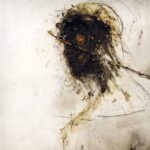 |
1. Peter Gabriel – Passion: Music for The Last Temptation of Christ (1990) This is the Sgt. Pepper’s of the New Age category. Gabriel’s masterful blending of world music and electronics, with stellar performances by Jon Hassell, Hossam Ramzy, L. Shankar, Baaba Maal, Manu Katché and others, created a global sound that moved from ambient moods to ecstatic percussive grooves. It is still influencing musicians today. Should’ve won: Peter Gabriel – Passion: Music for The Last Temptation of Christ |
|
 |
2. Enya – Shepherd Moons (1993) This, her third album, didn’t find a new direction. That happened on her first two releases, Enya and Watermark. Shepherd Moons refined her mix of Celtic melodic aires and heavily-layered vocal choirs in a sound that is often imitated, but whose heights are rarely attained. Should’ve won: Enya – Shepherd Moons |
|
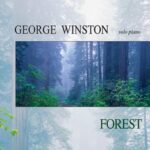 |
3. George Winston – Forest (1996) You want icons at the top of the Grammys list, which is the case with George Winston, who already broke barriers with albums like Autumn, Winter into Spring, and December. Forest is a perfection of Winston’s unique approach to the piano, and also shows the experimentation he embraced, playing inside the piano and taking on minimalism as an influence. Should’ve Won: George Winston – Forest |
|
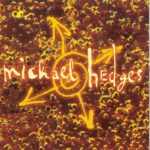 |
4. Michael Hedges – Oracle (1998) Talk about Icons: there isn’t a single finger-style guitarist I talk to who doesn’t cite Michael Hedges as the north star. Any of Hedges’s earlier albums, except Watching My Life Go By, should’ve been at the top of Grammy polling. But it was Oracle, his first posthumous release in 1998, that notched the award. Mostly completed before he died, this album has a more heavily produced sound even though it’s just Hedges and bassist Michael Manring and contains some of his most memorable compostions. Should’ve won: Michael Hedges – Oracle |
|
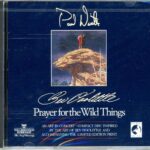 |
5. Paul Winter – Prayer for the Wild Things (1995) This was Winter’s first of 6 Grammy Awards, with 13 nominations, coming some 24 years after his first groundbreaking releases, Road and Icarus. Winter has always made music from the heart and his heart is in the wilderness of America. He paired his ensemble with animals from across the Rocky Mountains. Combining nature sounds and new age music is something of a cliché, but Winter transcends it here. Should’ve Won: Paul Winter – Prayer for the Wild Things |
|
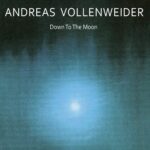 |
6. Andreas Vollenweider – Down to the Moon (1987) This was the first winner ever in the New Age category and you couldn’t find a better release for that. A concept album, this featured the Swiss harpist at his most adventurous and melodic, creating a seamless journey through a world music of the imagination. Should’ve Won: Andreas Vollenweider – Down to the Moon |
|
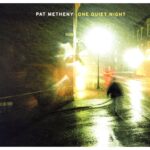 |
7. Pat Metheny – One Quiet Night (2004) An iconic musician in jazz, Metheny found himself slumming in the New Age category in 2004 for his album of deep solo guitar ruminations, conceived in New York City in the aftermath of 9/11. It is not as adventurously audacious as many Metheny albums, but it is perfectly conceived, deeply beautiful, and seductively intimate. Should’ve Won: Pat Metheny – One Quiet Night |
|
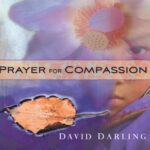 |
8. David Darling – Prayer for Compassion (2010) One of the avatars of Ambient Chamber Music, the cellist created an intensely-felt and beautifully-crafted album. It follows suit from his previous CDs, Eight-String Religion and Cello Blue, as he orchestrates a blissful landscape, over-dubbing cello choirs, laying down reverb-drenched melodies, and looping trancey rhythms. Should’ve Won: David Darling – Prayer for Compassion |
|
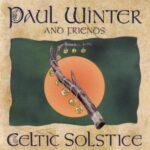 |
9. Paul Winter – Celtic Solstice (2000) Winter jumped on the Celtic bandwagon with a vengeance in the late 1990s. He got some of the new Celtic greats on the album, including Joanie Madden on flute and whistle, uilleann pipers Davy Spillane and Jerry O’Sullivan, fiddler Eileen Ivers, and Solas singer Karan Casey. It features one of his signature pieces, the Organ and saxophone gothic drone track, “Dawnwalker.” Winter tapped into the communal nature of Irish music. It’s the same spirit he takes from his jazz background. When he joins the pipes and whistles in dizzying improvisations or contemplative ruminations, there’s a sense of shared exploration that takes you with him. Should’ve Won: Paul Winter – Celtic Solstice |
|
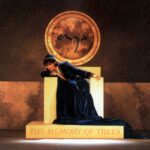 |
10. Enya – The Memory of Trees (1997) More of the same from the multi-tracking Irish songbird, but taking a more pop direction, even more than “Orinocco Flow.” But there were also more probing tracks, like the cycling gothic chant of “Pax Deorum,” “La Sonadora” couching an Irish air in Spanish language, and the uplifting “On My Way Home.” Should’ve Won: Ottmar Liebert and Luna Negra – Opium |
|
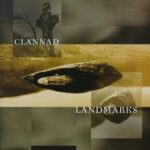 |
11. Clannad – Landmarks (1999) A solid, but not outstanding, album from these Celtic pioneers who spawned Enya. Their two previous nominations, Banba and Lore, were superior, but you can never go wrong with Celtic aires and the voice of Moya Brennan. Should’ve won: Alex De Grassi – The Water Garden |
|
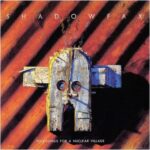 |
12. Shadowfax – Folksongs for a Nuclear Village (1989) Shadowfax came out of progressive rock, not New Age music, but once they signed to Windham Hill Records and had their careers resurrected, that’s where they were slotted. Virtuoso musicians, Shadowfax brought rock, jazz and electronics together, fronted by the saxophones and Lyricon of Chuck Greenberg. This is their first album after jumping from Windham Hill to Capitol Records, and found them creating a much more aggressive take on their sound. Co-Producer David Kershenbaum was usually making records with Duran Duran, Tracy Chapman, Joe Jackson and Laura Branigan. While not quintessential, nor the best Shadowfax album, it still was a statement. Should’ve Won: Mark Isham – Castalia |
|
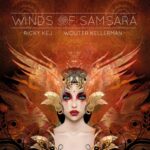 |
13. Ricky Kej and Wouter Kellerman – Winds of Samsara (2015) This is a globetrotting release from South African flutist Wouter Kellerman and Indian producer Ricky Kej. Owing a debt to artists like Paul Winter and Afro Celt Sound System, they created an atmospheric take on world music with a strong Indian core. The production is impeccable and the blending of African and Indian music seamless. Should’ve Won: Ricky Kej and Wouter Kellerman – Winds of Samsara |
|
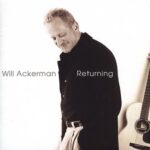 |
14. William Ackerman – Returning (2005) This is the only Grammy award for the guitarist who created Windham Hill Records and recorded albums that changed the course of solo guitar music, like In Search of the Turtle’s Navel in 1976, It Takes a Year in 1977, Passage in 1981, and Past Light in 1983. The list goes on. Returning featured re-recordings of his best-loved pieces and because of that, it is nearly perfect. Should’ve Won: Jonathan Elias – American River |
|
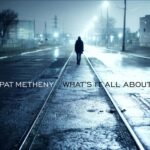 |
15. Pat Metheny – What’s It All About (2012) Like One Quiet Night, this is a solo acoustic guitar album, but this time, all covers. Metheny covers songs that I would consider some of the most saccharine releases of the 1960s, including tunes by The Association, The Carpenters, Connie Stevens and Dione Warwick. But Metheny doesn’t think they are saccharine or schlocky and turns them into deep meditations. The highlight is Simon and Garfunkel’s “The Sound of Silence,” played on his 42-string Picasso guitar. Near perfection. Should’ve Won: Pat Metheny – What’s It All About |
|
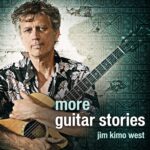 |
16. Jim “Kimo” West – More Guitar Stories (2021) What a beautiful album from this guitarist who came to renown as a Hawaiian slack key guitarist, makes his money and gets his ya-yas out playing in Weird Al Yankovic’s band. This is a gorgeous release, full of ear-catching melodies and interleaved playing with accompanists on electric and acoustic bass, tabla, and cello that flesh out West’s pastoral compositions. Should’ve Won: Jim “Kimo” West – More Guitar Stories |
|
 |
17. Enya – A Day Without Rain (2002) Nothing much different from Enya’s other recordings, which means it had all those lush vocals, Celtic-inflected melodies and pizzicato synth strings, layered over spare synth pads and piano arrangements. It also contained the single “Only Time,” which became a post-9/11 anthem. A good album, but not groundbreaking or pushing the envelope. Should’ve Won: David Darling – Cello Blue |
|
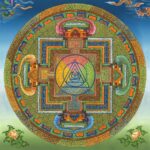 |
18. White Sun – White Sun II (2017) Should’ve Won: Enya – Dark Sky Island |
|
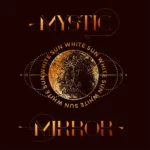 |
19. White Sun – Mystic Mirror (2023) I’m lumping #18 White Sun II and #19 Mystic Mirror by White Sun together because they are both very similar and beautiful. There are all kinds of New Age, eastern mysticism wrapped up in this group, mostly surrounding Harijiwan Khalsa, a high-ranking member of an American Sikh movement. As near as I can tell, his participation in the music is steadily banging a gong. The artistry comes from the voice of Gurujas Khalsa, a vehicle as pure as snow, and the arrangements of producer Adam Berry. Like Donna De Lory, they turn Hindu chants into ecstatic pop songs. They set a high bar for this style. Should’ve Won: White Sun – Mystic Mirror |
|
 |
20. Wouter Kellerman, Eru Matsumoto, Chandrika Tandon – Triveni (2025) Wouter Kellerman took his second Grammy for another Indian-influenced release, teaming up with Japanese cellist Eru Matsumoto and Indian-American singer Chandrika Tandon. But this is true world fusion, with African drums and percussion adding a subtle throb to these intimate, free-floating songs that are more like journeys than meditations. Should’ve Won: Wouter Kellerman, Eru Matsumoto, Chandrika Tandon – Triveni |
|
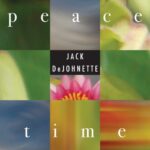 |
21. Jack DeJohnette – Peace Time (2009) I remember being harsh on this album at the time, and I must confess to being prejudiced that one of the greatest drummers in jazz was going out of his lane with a meditative New Age Album. I was wrong. This is a beautiful, moving 62-minute track with DeJohnette playing lots of flute as well as synth drones, chanting and percussion. I’m glad New Age voters at the time knew better than me what a wonderful album this is. Should’ve Won: Jack DeJohnette – Peace Time |
|
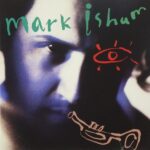 |
22. Mark Isham – Mark Isham (1991) Few on this list have as eclectic a career as Mark Isham. A trumpet player, turned electronic artist with Vapor Drawings, turned fusion jazz artist, turned film composer, operating across genres. This is bite-size Isham, traversing a lot of moods with a killer group, including guitarist David Torn, drummer Terry Bozzio, bassist John Patitucci and pianist Chick Corea. It hovers just above the vapid velvet of smooth jazz and tries to buff the innovations of his previous five, much more brilliant, albums. Should’ve Won: Michael Hedges – Taproot |
|
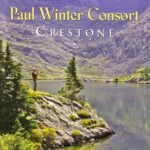 |
23. Paul Winter Consort – Crestone (2008) Another album of the consort playing in nature, this time sites around Crestone, Colorado. Winter takes a beautifully spare approach to this new age template, letting his ensemble’s instruments reverberate in the environmental spaces. Should’ve Won: Paul Winter Consort – Crestone |
|
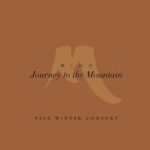 |
24. Paul Winter Consort – Miho: Journey to the Mountain (2011) Recorded in the I.M. Pei-designed Miho Museum, in the Shigaraki Mountains near Kyoto, Winter taps the meditative spirit attendant there. He still brings in all the global elements that have marked his music from the beginning, including Armenian singer and sazabo player Arto Tuncboyaciyan, Indian Sarangi players and Japanese Koto musicians, among many others. Should’ve Won: R. Carlos Nakai, William Eaton and Will Clipman – Dancing Into Silence |
|
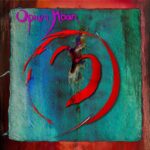 |
25. Opium Moon – Opium Moon (2019) Opium Moon is world fusion group with a lean toward middle eastern modalities, made-up of global virtuosos including santurist Hamid Saeidi from Iran, violinist Lili Haydn from Toronto, percussionist MB Gordy from Maryland, and bassist Itai Disraeli from Israel. Over sensual, throbbing grooves, Haydn and Saeidi improvise freely, although tracks tend to meander. Should’ve Won: Steve Roach – Molecules of Motion |
|
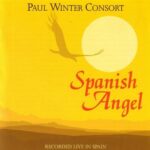 |
26. Paul Winter Consort – Spanish Angel (1994) This is another live Winter release, recorded in Spain with one of his main line-ups in the 80s, which included keyboardist Paul Halley, cellist Eugene Friesen, percussionist Glen Velez and flutist Rhonda Larson. It is a solid album and Larson’s flute playing is a revelation as always. But it didn’t push any envelopes. Should’ve Won: Ottmar Liebert and Luna Negra – The Hours Between Night and Day |
|
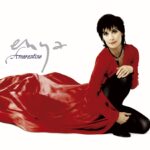 |
27. Enya – Amarantine (2007) From the first blanket of choral voices awash in reverb, Amarantine is instantly recognizable as a product of Enya, a genre unto herself. While there are many Enya gems here, including songs sung in the imaginary language of Loxian, you have to slog through slo-mo ballads that manage to be dirge-like and singsong at the same time, like The Carpenters on quaaludes. Should’ve Won: Peter Kater – Elements Series: Fire |
|
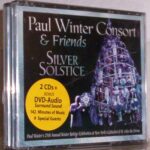 |
28. Paul Winter – Consort Silver Solstice (2006) This is essentially a greatest hits package recorded live at the Cathedral of St. John the Divine in New York, where Winter has performed Winter Solstice shows annually since 1980. Looked at as a best-of collection, it works fine but didn’t push the limits of what Winter can do at all. Should’ve Won: George Winston – Montana |
|
 |
29. Peter Kater – Dancing on Water (2018) This prolific pianist had 14 Grammy nominations before he landed a win with Dancing on Water. Although he’d done everything from smooth jazz to world fusion to Native American-infused music, it was a solo piano release that gave him the nod, and it is one of his best solo releases. It’s full of rippling melodies that indeed, seem to flow like water, while leaving most of Kater’s penchant for sweet sentimentality behind. Should’ve Won: Steve Roach – Spiral Revelation |
|
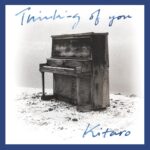 |
30. Kitaro – Thinking of You (2001) Kitaro has released a dozen albums that could have and maybe should have won this category. Thinking of You, his 15th release, is not one of them. It’s not awful, it’s just a reiteration of themes Kitaro had been working since his 1978 debut. It’s full of Kitaro’s reedy synth leads, colorful Asian percussion and overworked strings. Should’ve Won: R. Carlos Nakai, William Eaton, Will Clipman and Nawang Khechog – In a Distant Place |
|
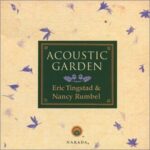 |
31. Tingstad and Rumbel – Acoustic Garden (2003) Guitarist Eric Tingstad and oboist/ocarina player Nancy Rumbel were mainstays of the commercial era of New Age. They released 12 albums beginning in 1985 before they won a Grammy for Acoustic Garden. It’s a typical later period release, full of pastoral melodies and occasionally floundering on lounge music rhythms like on “Blue Martini.” Although they created some pretty music, they were always middle of the pack. Should’ve Won: William Ackerman – Hearing Voices |
|
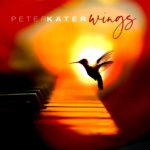 |
32. Peter Kater – Wings (2020) Peter Kater seems to have a spot reserved for him in the Grammy nominations. This was the pianist’s 14th time making a go at a Grammy in 15 years. Wings is in his typical solo piano mode of rhapsodic playing, but was much sweeter and even more romantic and, to its fault, more schlocky than many of his previous albums. Should’ve Won: David Darling – Homage to Kindness |
|
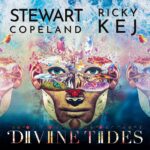 |
33. Stewart Copeland & Ricky Kej – Divine Tides (2022) Ricky Kej has won three out of his four nominations in the New Age, etc. category. This collaboration with former Police drummer Stewart Copeland finds him in even heavier Indian/Bollywood terrain with a lot more percussion touches from Copeland. Why this wasn’t in the World or Global Music category is not a mystery. Kej had a better chance of winning in New Age, but it does not belong. Should’ve Won: Wouter Kellerman & David Arkenstone – Pangaea |
|
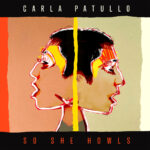 |
34. Carla Patullo – So She Howls (2024) Carla Patullo is a film composer of several notable, but minor releases. Her album, So She Howls, is a neo-classical work that the ear will instantly scan as a soundtrack. It’s a sophisticated album that mixes many styles, including Asian on “Family Chairs,” and will remind you of Hans Zimmer in many moments. But it’s not New Age nor Ambient – I suspect it’s an album that got tossed here because it didn’t fit anywhere else. Should’ve Won: David Darling & Hans Christian – Ocean Dreaming Ocean |
|
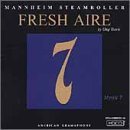 |
35. Mannheim Steamroller – Fresh Aire 7 (1992) I had to go back to this one since Mannheim Steamroller pretty much fell off the map after being dominant in the 70s and 80s. Their mix of classical motifs and rock rhythms tapped the same audience as Yanni. The album’s first half is typical Steamroller bombast. The second half, “The Seven Chakras of the Body” suite, takes a more spare and meditative approach. But even here, they couldn’t stay away from the bombast. Should’ve Won: David Arkenstone – In the Wake of the Wind |
|
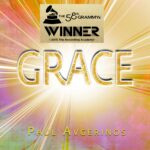 |
36. Paul Avgerinos – Grace (2016) Paul Avgerinos is appropriately New Age to a fault. He’s released some wonderful albums, especially early on, with electronic and world fusion ambient releases like Balancing Spheres, Muse of the Round Sky and Sky of Grace. But that was followed by a plummet into heavy new age spiritualism and a music palette of sickeningly sweet melodies and suffocating synth string and choral pads. That’s Grace. Should’ve Won: No One. It Was a Bad Year. |
|
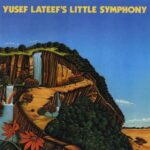 |
37. Yusef Lateef – Yusef Lateef’s Little Symphony (1988) Listening back, I’d forgotten how truly bad this album is. The famed jazz saxophonist plugs in here with the most brittle cheesy electronic sounds over which he plays various flutes and saxophones along with percussion and a bit of sitar. Sounds like a kitchen sink new age album and it kind of is. When Lateef is playing over a drone he works some sensual magic but cuts it at the knees with his synthesizer. Ouch! (That’s a response as I relisten.) Should’ve Won: Montreux – Sign Language |
|
 |
38. Omar Akram – Echoes of Love (2013) Afghan-American composer Akram trawls world fusion waters on this release, falling somewhere between Yanni and Ricky Kej in fusing eastern sounds with neo-romantic themes. The overall result is a middle of the road mush, Mantovani with hand-percussion. Should’ve Won: Loreena McKennitt – Troubadours on the Rhine |
|
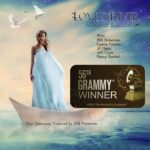 |
39. Laura Sullivan – Love’s River 2014 In what had been, except for her, the best collection of nominees in a while, Sullivan won over Brian Eno, Kitaro, R. Carlos Nakai and Peter Kater. In what universe does that happen? Only in the New Age Grammys. Love’s River is an album of polite parlor piano tunes and no amount of dressing from producer Will Ackerman, or accompanists Jill Haley, Jeff Oster, Eugene Friesen or Nancy Rumbel was going to change that. It’s not a bad record so much as a completely inconsequential one. And that is something that has plagued the New Age Grammys. Should’ve Won: Brian Eno – Lux |
